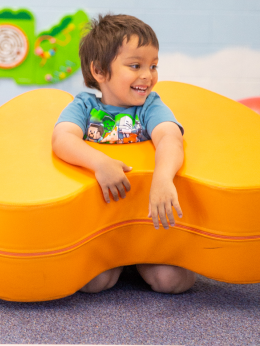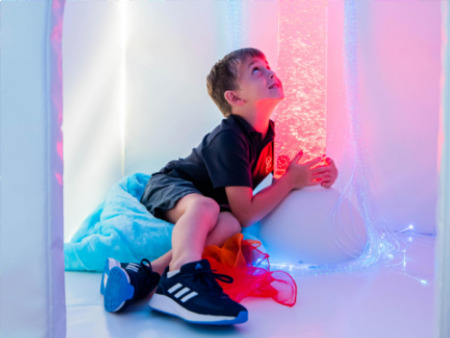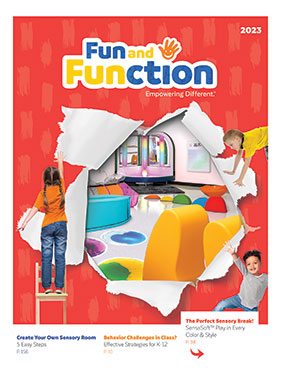Not everyone is born with an innate ability to socialize. For some people, including those with special needs, the ability to communicate, interpret and respond to feelings, expressions and emotions can be a big challenge. Yet we can learn to communicate with just a few great tools and with practice!
Regulation
Regulation is the ability to interpret and understand your sensory system and provide an appropriate response. But the first step is the interpretation. Using regulation tools, yoga, deep breathing and meditation can all be taught and used as a way to understand and be aware of your own feelings, sensations and emotions. Regular practice can turn a novice into an expert and not only help with social skills but also with well being and overall health.Empathy
How does someone else feel? Empathy is the ability to identify with another person's feelings. This can be done through discussions using facial photos, and images, looking through family photo albums, discussing someone's reaction to a situation, and working on acts of kindness to help those in need.Listening
Listening can be introduced with background music, audiobooks and storytelling but also begins as an activity using the entire body to focus on the speaker. It means using one's eyes, ears, and full self to attend. It may mean taking notes or softly repeating to one's self the directions that are given. And it may mean repeating back what has been said so the talker knows they were heard.Greet and Speak
Learning how to greet and when to greet someone is the first step to making social acquaintances. Eye contact, a verbal greeting and a smile make a great first impression but are not natural for many to do. This also involves being able to clearly articulate. This in itself may be a challenge requiring practice and even speech and or language therapies.Asking for Help
Learning to advocate for yourself is a skill that is not only beneficial but also crucial. The ability to communicate what one needs through a request may be a skill that takes practice and reassurance. Many children are fearful of approaching a teacher or adult to ask for something, to request assistance or to relay information. The first step is to create assurance and a secure feeling with the right sensory environment. This may mean having sensory tools or sensory space that can create comfort. Then we can begin to work on interaction.Conflict Resolution
Learning how to disagree, how to say no and how to apologize is a part of conflict resolution. Being assertive takes on a new level when it involves conflict. For many of us, conflict means being upset, yelling, pushing or keeping our feelings bottled up inside with resentment. But conflict resolution can be taught and practiced through meaningful interaction. It means using some of the skills we've mentioned so far such as regulation (noticing our feelings and being aware of them), empathy (listening and understanding another point of view), patience and speaking up clearly. It also means learning that you may not get your way, but that you can still voice your opinion.Respecting Space
Understanding your own body and the space it takes up will help to understand and respect the space of those around you. This is obviously culturally based, as some cultures are more comfortable with less space between individuals than others. In general, tools or props can help with sensitizing to boundaries in the public sphere as well as at home and school.Play Fair
Learning to take turns, share, and work together can create life long skills for eventually being a productive member of society. Playing board games, sharing a puzzle, or working on a project together can help children learn to play fair and provide them with the benefit of socializing.Socializing is a lifelong study of ourselves and how to interact with others. There is no one size fits all, but the ability to do so can have a lifelong impact on one's relationships, health and potential for success.
How you do encourage healthy social skills? We love to hear your thoughts! Reach out to us in the comments, at social@funandfunction.com, or on our social media pages!


























Comments